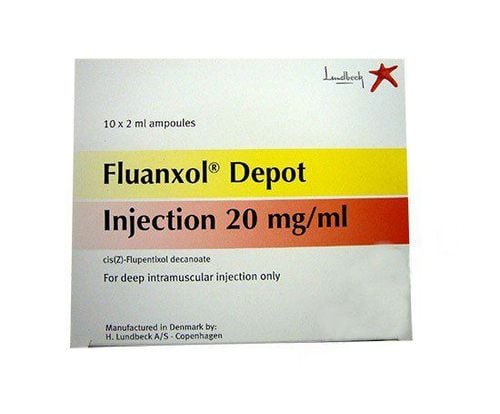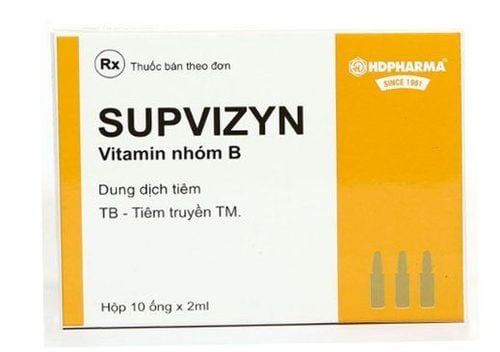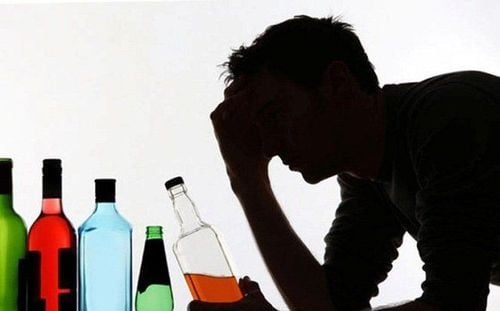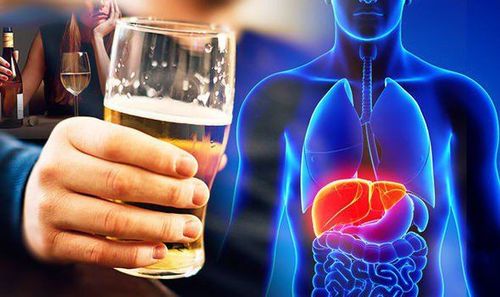This is an automatically translated article.
The article is professionally consulted by Master, Doctor Bui Ngoc Phuong Hoa - General Internal Medicine - Department of Medical Examination & Internal Medicine - Vinmec Danang International General HospitalAlcoholism can cause health problems, especially long-term alcoholism. Currently, there is no cure for alcoholism or alcohol abuse. Being able to treat alcoholism is a long process that requires both the individual effort of the addict and various treatments or therapies.
1. Facing the problem
The first step to starting treatment for alcoholism is to prepare mentally, accepting that you have been addicted to alcohol or abused alcohol. Facing them and accepting that drinking has a negative effect on a person's life is not easy, but it is a necessary step on the road to recovery.Alcoholism can damage your health, causing many complications such as increased risk of diseases: heart disease, various types of cancer, cirrhosis of the liver, gastritis, memory loss and disorders other neurological disorders, erectile dysfunction...
Addiction is often accompanied by certain mental or psychological disorders, such as depression or anxiety. When you lose control over your use of alcohol, you have become addicted to alcohol or abused alcohol. At first, you can cut down on alcohol, but the important thing is to be able to give up alcohol completely.
To achieve this goal, your doctor may recommend detox, counseling, medication, or other treatment options. The optimal treatment plan for alcoholics will depend on their individual circumstances, such as: history of alcoholism, level of support from family and friends, personal commitment and financial situation .
If you are ready to face your addiction and want to get rid of the health problems caused by alcohol then see your doctor.

2. Alcohol detox
Detoxification is usually done in an inpatient center or hospital. It usually takes a week to complete, as withdrawal symptoms can be very severe, you may also be given medication to help prevent symptoms: tremors, paranoia, hallucinations, seizures.3. Behavior modification
People who abuse alcohol regularly drink, so it's important to learn skills and coping mechanisms to help you avoid drinking when you leave the treatment center or return to a social setting. Your doctor may refer you to a counselor or other treatment program to help you learn skills and coping strategies to stay away from alcohol.4. Consulting
Counseling is a method by which doctors refer patients to one-on-one or group counseling. Support groups can be especially helpful when you are being treated for alcoholism. In addition, a support group can help you connect with others facing similar challenges. From there, people in the same situation can encourage, encourage and support each other to treat alcohol addiction more effectively.5. Drug use

Disulfiram
Disulfiram is the first drug approved by the FDA to treat alcohol use disorders. Disulfiram (Antabuse) changes the way your body breaks down alcohol. Disulfiram is an alcohol-sensitizing drug that can decrease your desire to drink by making you sick when you drink alcohol. When combined with alcohol, it can cause flushing, nausea, vomiting, and headaches.
Acamprosate
Acamprosate (Campral) relieves withdrawal symptoms - like insomnia, anxiety, restlessness that persist for months after you stop drinking. It may help fight alcohol cravings by restoring the balance of certain chemicals in your brain. Like Naltrexone, Acamprosate seems to work best for people who can stop drinking alcohol before starting treatment. Patients need to take two pills 3 times a day.
Naltrexone
When drinking alcohol while taking Naltrexone, the drinker may feel intoxicated, but will not experience the pleasure that usually comes with drinking. That is, Naltrexone helps block the good feelings that alcohol gives the drinker's brain. When the good feeling is gone, the drinker will drink less.
Naltrexone is available as an oral tablet or an injection. Vivitrol is an injectable form that your doctor can give you once a month. This medication is safer and more convenient than oral medication. Research shows that Naltrexone works best for people who have stopped drinking alcohol for at least 4 days when they start treatment.
However, if medication alone is not enough, the most important part of alcohol withdrawal is the patient's attitude. If the patient does not change his attitude to alcohol, even taking medicine will not work. Drugs as a motivation to support patients with addiction.
6. Long-lasting hope
Alcohol withdrawal is a lifelong journey, and patients may face relapses and temptations of alcohol after withdrawal, so ongoing treatment is essential. Some people are able to resist the temptation of alcohol and after so many times they can overcome the addiction easily, some patients relapse immediately after quitting. As such, the more you try to quit smoking, the higher your chances of success.Please dial HOTLINE for more information or register for an appointment HERE. Download MyVinmec app to make appointments faster and to manage your bookings easily.
Reference source: Webmd.com; Healthline.com













